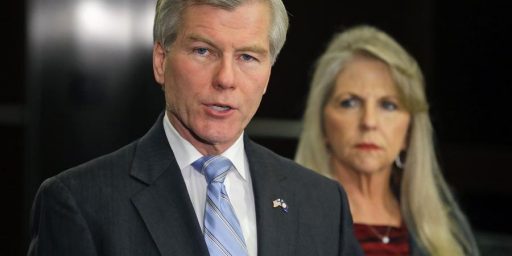SCOTUS Narrows ‘Honest Services’ Doctrine
Enron's Jeffrey Skilling and media mogul Conrad Black got new life today from the Supreme Court, who ruled the use of the "honest services" doctrine against them unconstitutionally vague.
Enron’s Jeffrey Skilling and media mogul Conrad Black got new life today from the Supreme Court, who ruled the use of the “honest services” doctrine against them unconstitutionally vague.
Justices Limit Use of ‘Honest Services’ Law Against Fraud – NYT
The justices were unanimous in calling at least the broadest interpretation of the law, which makes it a crime “to deprive another of the intangible right of honest services,” unconstitutionally vague. The decisions call into question the convictions of Jeffrey K. Skilling, a former chief executive of Enron, the Houston energy company, and Conrad M. Black, the newspaper executive convicted of defrauding his media company, Hollinger International.
The decisions may also have implications for many other cases, including those of former Gov. Rod R. Blagojevich of Illinois, whose trial for violating the law is underway in Chicago, and Joseph L. Bruno, once one of the most prominent politicians in New York who was convicted of federal corruption charges in December.
The law has been the subject of frequent criticism in the lower courts for giving potential defendants too little guidance and prosecutors too much discretion.
“How can the public be expected to know what the statute means when the judges and prosecutors themselves do not know, or must make it up as they go along?” Judge Dennis Jacobs of the United States Court of Appeals for the Second Circuit, in New York, asked in a 2003 dissent.
Justice Ruth Bader Ginsburg, in writing the majority decision in both the Skilling and Black cases on Thursday, said the law must be limited to the core offenses of bribes and kickbacks. Mr. Skilling’s conduct, she said from the bench, “entailed no bribe or kickback.”
The court sent both cases back to the lower courts. Mr. Skilling’s lawyers have argued that a decision in his favor should void his entire conviction, which was based on several theories. That, Justice Ginsburg wrote, is “an open question.”
It’s important to note that the Court didn’t overturn either conviction, merely remanded them. Still, a stunning blow for two very-high-profile cases and for a law that gives prosecutors enormous power.
This law is pretty technical and its vagaries are well outside my expertise. From what I’ve managed to glean thus far, though, the ruling strikes me as a very good one. Judge Jacobs’ question — “How can the public be expected to know what the statute means when the judges and prosecutors themselves do not know, or must make it up as they go along?” — goes to the very heart of our system of justice.
Jeralyn Merritt links both opinions and observes, “It seems to me that since one of Skilling’s conspiracy counts included the honest services allegation, the conspiracy conviction should also be vacated. But that will be up to the lower court.”
Ann Althouse muses, “Skilling was convicted 5 years ago, by the way. Isn’t it disturbing that justice takes so long, even — especially? — for a very rich man?” While I don’t weep for the rich in general or Skilling in particular — they get far better treatment in our system than the poor, after all — I agree that five years is a long time to go from conviction to final appeal. And, actually, it ain’t over yet since he now has to go back to the lower court.
Nothing yet from Steve Bainbridge or the Volokh Conspirators. I’ll check back later.







The Blago prosecutors amended their charges when they sensed that the SCOTUS was going to narrow the doctrine. Whether they tightened them up enough or not will be seen, but Blago is being tried with this type of result anticipated.
Hey James–you might want to link to Lyle Denniston over at SCOTUSblog: http://www.scotusblog.com/2010/06/honest-services-law-pared-down/